You might buy large bags of sugar and never really wonder if they need to be stored in a certain way.
Similarly, you might not ask yourself if sugar storage varies depending on whether you have white or brown sugar at home.
Are brown and white sugar the same?
While they both taste sweet, there are some important differences between white and brown sugar food storage.
What about the way you should store them? Read on to find out everything you need to know about sugar and why it’s such a great survival food.
What’s The Difference Between White And Brown Sugar?
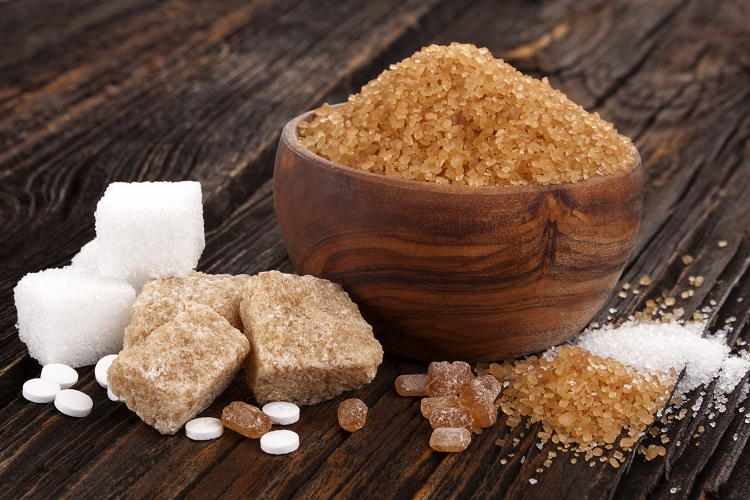
White and brown sugar look different, but do they have other differences?
You might have noticed that brown and white sugar taste a bit different. While brown sugar has a toffee-like flavor, which is as a result of its molasses content, white sugar tastes very sweet.
This affects how you use the sugar. For example, you might not always want to use brown sugar in baking because its toffee flavor alters the taste of the final product.
However, when it comes to the nutritional content of sugar, both white and brown sugar are the same. You need to limit your consumption of both to prevent health problems. Although brown sugar does have a few more minerals than white sugar, these are not enough to give brown sugar health benefits over white sugar.
How To Soften Sugar That’s Become Hard
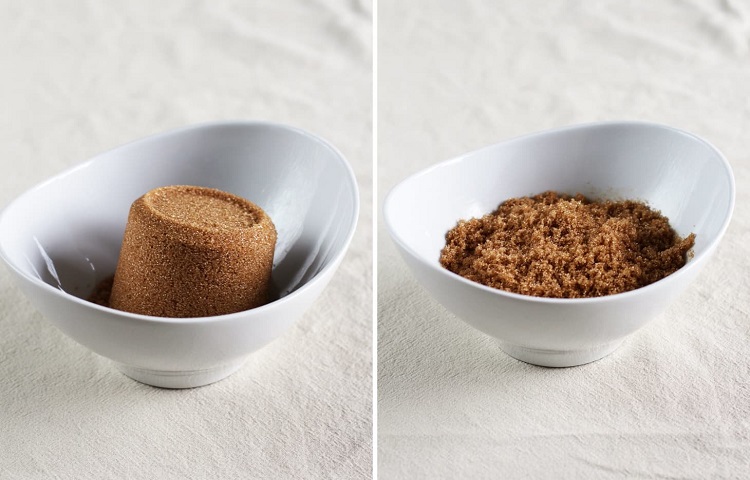
Brown sugar can become hard as a result of its molasses. When molasses is exposed to air, it evaporates and this makes the sugar become very hard.
While it’s good to keep your sugar in an airtight container so that this can’t happen in future, you might have the problem of rock-hard brown sugar right now.
Here’s how to fix it:
- Put a lump of the hard sugar in a microwave-safe bowl. Cover the bowl with a moist paper towel.
- Warm up the sugar on high heat for 20-second bursts. In-between, you should break up the large clumps of sugar with a fork.
- Make sure you don’t let the sugar melt in the microwave otherwise it will cool down and become caramelized!
What About White Sugar?
White sugar can also become hard. Again, this is as a result of it being exposed to the air. That’s why it’s good to store all types of sugar in airtight containers.
If your white sugar is hard as a rock, you can also break it up in the microwave. Put it in a microwave-safe bowl, and remember to put a plate or sheet of plastic wrap on top. Then, microwave it for about a minute or two. Keep checking on it so that it doesn’t start to melt.
How To Store Your Sugar
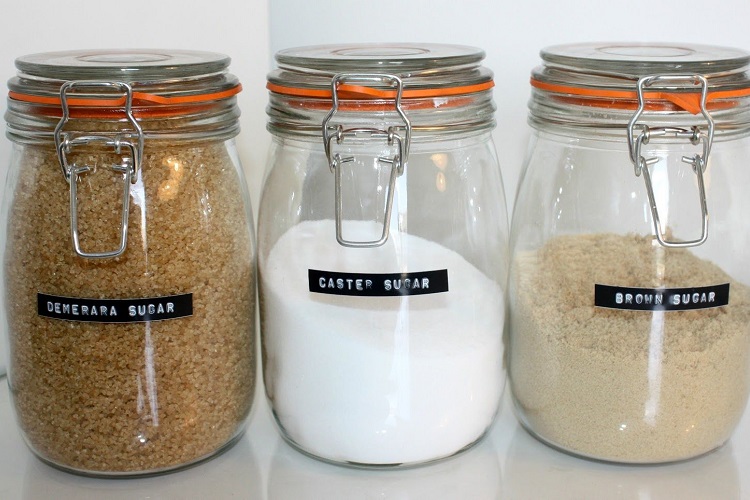
We’ve already mentioned that it’s important to store your sugar, whether white or brown, in airtight containers to prevent it from becoming hard. But there are other important tips to bear in mind when it comes to sugar storage.
- You should store sugar in a dry, cool, dark place, such as a cupboard in the kitchen.
- Make sure the cupboard is free of any odors so that the sugar won’t absorb them. There’s nothing worse than tasting something funky in your tea or coffee!
- If you have a small amount of sugar you wish to store, you can go ahead and put it in a mason jar or food-grade plastic container, as long as it has airtight seals. Larger quantities should be stored in food-grade storage containers with gasket lids. Any of these can long-term storage solutions can be found on amazon or at some grocery stores.
Some preppers choose to store sugar in sealed Mylar bags or plastic bags before they put it into an airtight container. This is useful in that it prevents the sugar from clumping.
Sealed Mylar bags are great for storing sugar long term because of how they’re made of strong plastic that’s flexible, durable, cheap, easy to use, and impermeable to gas. It’s also non-porous, so it will keep your sugar safe and free of strong odors even in the event of a natural disaster such as flooding.
What’s The Shelf Life Of Sugar?
Granular sugar is said to have an indefinite shelf life as a result of its resistance to microbial growth.
That said, it’s best to consume sugar within about two years as this will ensure that it still has a high level of quality and tastes good.
Should You Store Honey Instead Of Sugar?
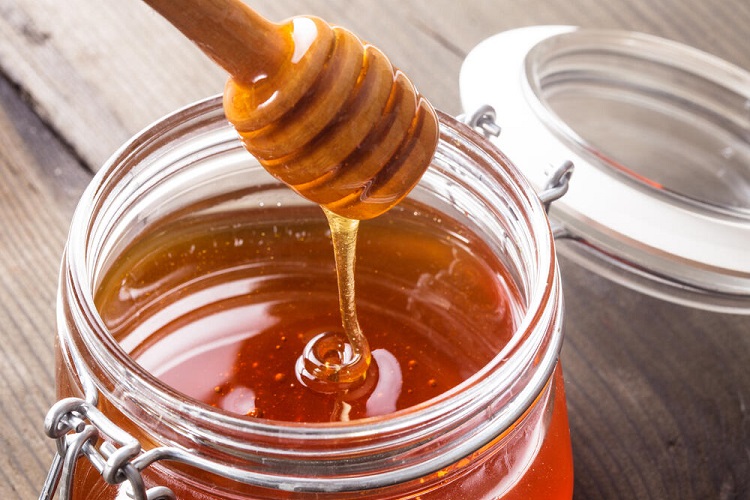
Honey is low on the glycemic index so it’s a healthier substitute for sugar. Sugar is higher on the glycemic index than honey, meaning that it increases your blood sugar levels faster.
Honey also undergoes less processing than sugar and contains other elements, such as vitamins, enzymes, and antioxidants. That said, sugar has less calories than honey.
From a nutritional point of view, you should limit your consumption of both sugar and honey as a result of weight gain, tooth decay, and increased risk of illness.
When it comes to storage concerns, honey is a fantastic survival food because it can last forever. As long as you keep it tightly closed in a sealed container, in a dry place, and don’t add any water to it, it won’t become spoiled.
If you’re going to store honey longterm, you should remove it from the original packaging and place it in metal containers, canning jars, or glass jars for ideal storage.
Related Questions
Can you freeze sugar?
While you can freeze sugar provided it’s stored in an airtight container or in food-grade plastic buckets, you probably don’t have to considering that sugar has such a long lifespan. Freezing sugar will also take up space in your freezer that’s better used for other foods.
Does sugar ever go bad?
Technically, granulated sugar can be kept indefinitely. Brown sugar has a lifespan of about 18 months, while confectioners’ sugar lasts for about two years.
Conclusion
Sugar gives you energy, acts as a sweetener for many dishes, and makes your morning coffee taste really good. But how you store it is something you need to know as a survival prepper.
We’ve outlined important tips to bear in mind when storing sugar for the long haul, and have offered you advice on how to deal with lumpy or rock-hard sugar.
Sources:

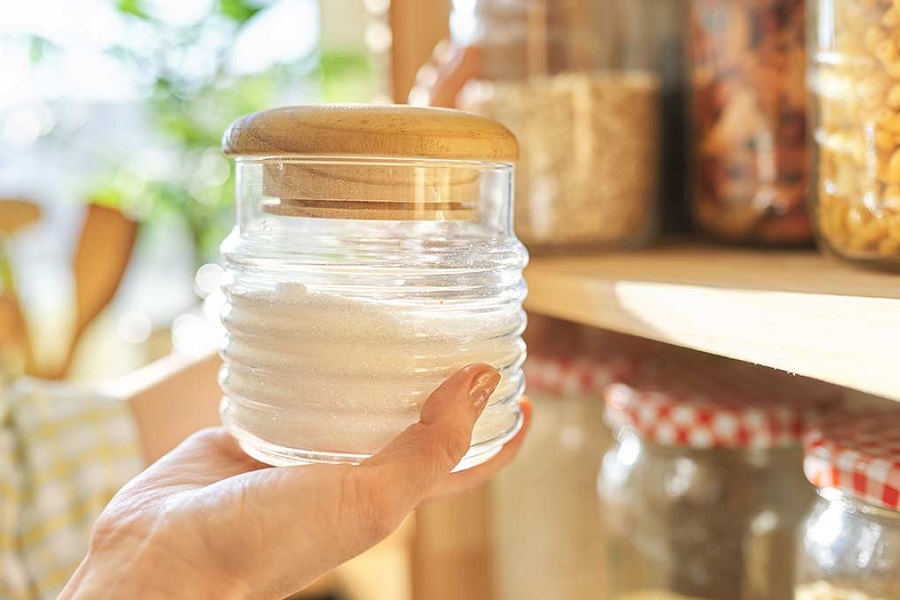
[lasso rel="emergency-preparedness-more-a-manual-on-food-storage-and-survival-2nd-edition-revised-and-updated" id="35334"]